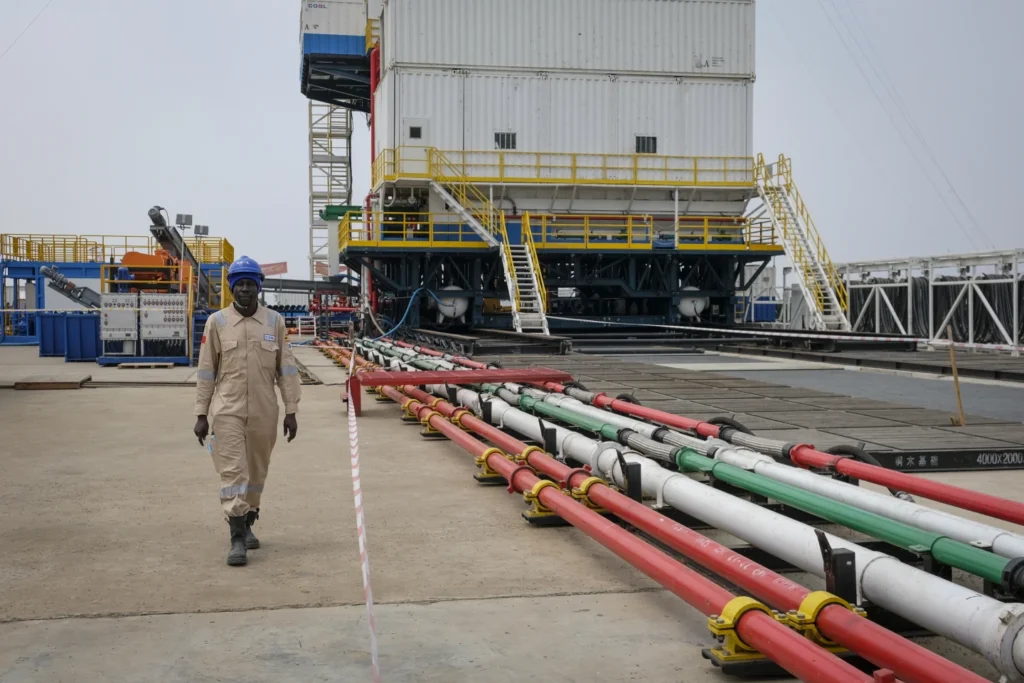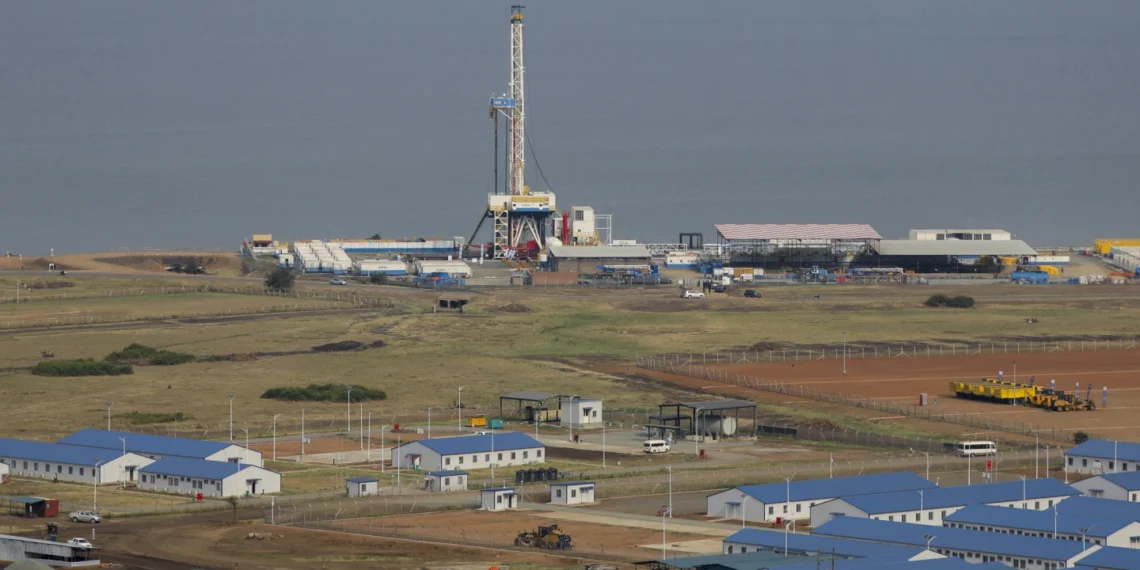Oil activities on the shores of Uganda’s Lake Albert have ignited widespread suffering among local communities, who face forced displacement and violent abuses, according to a US-based climate watchdog.
The report, released Monday by Climate Rights International, urges banks and insurers to halt further funding for an oil development project managed by the China National Offshore Oil Corporation (CNOOC).
This project, which is one of two linked to the proposed construction of a heated pipeline connecting Uganda’s emerging oil fields to a port in Tanzania, includes the construction of a central processing facility. However, this vast development zone has become off-limits to many locals, cutting them off from vital resources.
The report is groundbreaking, as it is the first to document serious allegations against CNOOC, a key partner in the project.
Based on dozens of interviews, the report highlights a range of abuses, including forced evictions, insufficient or nonexistent compensation for land and other assets, coercion and intimidation in land acquisition, loss of livelihood, and sexual violence.
Interviewees also accused Ugandan government troops of perpetrating forced evictions, destroying fishing boats, engaging in violence, and fostering “a climate of fear.”
“It is appalling that a project touted as bringing prosperity to the people of Uganda is instead leaving them victims of violence, intimidation, and poverty,” said Brad Adams, executive director at Climate Rights International, in a statement.
He described the CNOOC-run Kingfisher project as not only “a dangerous carbon bomb” but also a “human rights disaster.”

Oil Pipeline Faces Growing Opposition
Uganda is estimated to have recoverable oil reserves of at least 1.4 billion barrels, and officials have projected that oil production could commence by 2026. The total investment in Uganda’s oil fields is expected to reach approximately $15 billion.
French oil giant TotalEnergies holds the majority share in these fields with a 56.67% stake, followed by CNOOC with 28.33%, and the Uganda National Oil Company with 15%.
Despite discovering commercially viable oil deposits nearly two decades ago, Uganda has faced numerous obstacles in achieving production and export capacity. These challenges include tax disputes with oil companies, corruption allegations, and persistent human rights concerns.
While climate watchdogs have previously targeted TotalEnergies for its involvement in Uganda’s oil projects, with at least two lawsuits filed in France alleging food and land rights violations, the focus is now expanding to CNOOC.
Activists opposed to Uganda’s oil industry have long criticized the 897-mile (1,443-kilometer) East Africa Crude Oil Pipeline, a project spearheaded by TotalEnergies and CNOOC.
The pipeline is planned to run through ecologically sensitive areas, including seven forest reserves and two game parks, before reaching the Indian Ocean port of Tanga. The pipeline’s route also threatens Lake Victoria, a critical source of fresh water for 40 million people.
In response to the opposition, TotalEnergies has consistently maintained that the pipeline’s state-of-the-art design will ensure its safety for decades. A spokeswoman for CNOOC in Uganda could not be reached for comment.
Ugandan officials, meanwhile, have dismissed the climate campaigns as undue interference in the nation’s internal affairs, arguing that oil wealth has the potential to lift millions out of poverty.
President Yoweri Museveni has warned that if TotalEnergies and its partners withdraw from Uganda, his government will “find someone else to work with.”
READ ALSO: AG Calls for Global Cooperation Against Cross-Border Crimes























